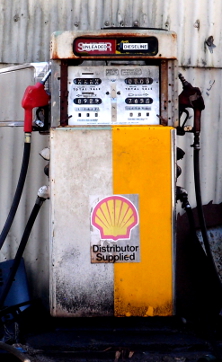Shell sacks thousands, ripples may take more
 Energy giant Royal Dutch Shell is sacking 6,500 workers amid lower prices for crude oil and dwindling profits.
Energy giant Royal Dutch Shell is sacking 6,500 workers amid lower prices for crude oil and dwindling profits.
Shell's latest quarterly figures showed profit down by almost 40 per cent, a drop attributed to recent oil slumps.
Shell’s $US1.05 billion quarterly loss beat the record set by fellow energy giant Peabody Energy.
With the crude oil price set to hover in the basement, Shell will slash capital spending by $US3 billion.
The company is determined to convince investors it can withstand the long period of lower oil prices, despite its planned purchase of BG Group not yet gaining approval.
In order to do this, Matthew Beesley, head of global equities of Henderson Global Investors, says Shell will cut about 7 per cent of its entire workforce.
“They are very keen to signal to investors that should oil prices stay at these low levels, currently below $US50, then there's more they can do in terms of job cuts, more they can do in terms of cost cuts and more they can do in terms of capital expenditure reduction,” Mr Beesely said in an ABC interview.
“Shell, in trying to buy BG, are making a bet that oil prices are going to go higher, so for them it's important in advance of a completing the acquisition that they get their own house in order so they can weather lower prices if indeed we are in an environment where prices are lower for longer.”
He said the job losses would flow outside the company, with the oil downturn hitting all sort of associated contractors.
“I think that's inevitable. There will be cuts from the contracting work phase too and, on top of that, Shell is looking to acquire BG and you have to think that most of the white-collar workforce at BG will be vulnerable too,” Mr Beesley added.
“The Curtis Island project in Queensland is a project that is ramping up now, and is a key part of the attraction for Shell in acquiring BG.
“It will give Shell in total the best part of a third of the global LNG market by the time we get out to 2018.
“Of course for them to make the amount of money that they hope to make out of this business, they will need oil prices and gas prices to be higher.”








 Print
Print